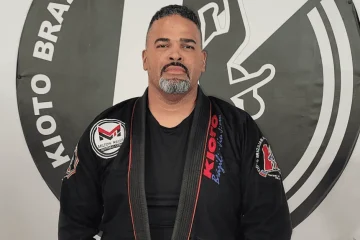Introduction
As an aspiring coach, understanding the significance of ICF certification is crucial for elevating your coaching career. This prestigious credential is recognized globally and signifies that you have met rigorous standards of training, ethics, and professional practice. Obtaining ICF certification enhances your credibility in a competitive market, reassuring potential clients that you are equipped with the skills needed to provide effective coaching services.
What is ICF Certification?
ICF certification is awarded by the International Coach Federation (ICF), the leading governing body in the coaching industry. This certification serves as a benchmark for coaching excellence, ensuring that coaches adhere to high standards of education and ethical practices. By becoming ICF certified, you demonstrate your commitment to the coaching profession and your dedication to personal and professional growth.
The ICF offers three primary credentials based on different levels of training and experience:
- Associate Certified Coach (ACC): This entry-level credential is for coaches who have completed at least 60 hours of coach-specific training and accumulated a minimum of 100 hours of coaching experience.
- Professional Certified Coach (PCC): This mid-level credential is intended for coaches who have completed at least 125 hours of training and logged 500 hours of coaching experience.
- Master Certified Coach (MCC): The highest credential, requiring coaches to have at least 200 hours of training and 2,500 hours of coaching experience.
Holding an ICF certification not only enhances your professional reputation but also opens up opportunities for growth and networking within the coaching community. To learn more about ICF certification options, you can explore icf certification.
Why Choose ICF Certification?
Becoming an ICF-certified coach is essential for establishing your credibility and gaining the trust of potential clients. An ICF certification signifies that you have met rigorous educational and ethical standards set by the International Coach Federation, which is recognized globally as a leading authority in coaching. This certification helps distinguish you from other coaches who may not have formal training, allowing you to position yourself as a qualified professional in a competitive market.
The benefits of ICF certification extend beyond credibility. As a certified coach, you gain access to a global community of coaching professionals, providing opportunities for networking, collaboration, and continuous learning. Being part of this community enhances your professional development by keeping you informed about best practices, new coaching techniques, and industry trends. Many ICF-certified coaches report increased client engagement and satisfaction, which can lead to more referrals and a stronger client base.
Statistics support the value of certification; a significant percentage of coaching clients believe that having a certified coach is crucial for effective coaching. This consumer preference for certified professionals underscores the competitive advantage you gain by obtaining ICF certification.
Understanding the ICF Credentials
The ICF offers three primary credentials, each tailored to different levels of experience and commitment in the coaching profession:
Associate Certified Coach (ACC)
- Requirements: To earn this credential, you must complete at least 60 hours of training and accumulate a minimum of 100 hours of coaching experience. This certification is ideal for those starting their coaching journey and looking to establish a foundational understanding of coaching principles.
Professional Certified Coach (PCC)
- Requirements: For the PCC credential, you need to complete at least 125 hours of training and log 500 hours of coaching experience. This certification is suitable for coaches who seek to deepen their skills and knowledge, offering more advanced techniques and frameworks to enhance their coaching practice.
Master Certified Coach (MCC)
- Requirements: The MCC credential is for experienced coaches who wish to demonstrate advanced competencies. To qualify, you must complete at least 200 hours of training and gain 2,500 hours of coaching experience. This prestigious certification is designed for those who aim to excel in specialized coaching fields and provide high-level coaching.
The Path to ICF Certification
Achieving ICF certification involves a structured process designed to ensure that you meet the highest standards in coaching. Here are the key steps you need to follow:
- Choose an ICF-accredited training program: Start by selecting a training program that is accredited by the ICF. This ensures that the education you receive aligns with ICF’s Core Competencies and ethical standards.
- Complete required training hours and coaching experience: Each credential level has specific training and experience requirements:
- For the ACC, you need at least 60 hours of training and 100 hours of coaching experience.
- For the PCC, the requirements increase to 125 hours of training and 500 hours of coaching experience.
- The MCC requires 200 hours of training and 2,500 hours of coaching experience.
- Undergo mentor coaching for skill development: Engage in mentor coaching, which involves working with a qualified mentor to refine your coaching skills. This is an essential step to ensure you are applying the ICF Core Competencies effectively.
- Pass the ICF credentialing exam: Finally, you’ll need to pass a written exam that assesses your understanding of coaching principles, ICF’s ethical guidelines, and your ability to apply these in practice.
Choosing the Right ICF-Accredited Training Program
Finding and selecting the right ICF-accredited training program is crucial for your journey toward certification. Here are some factors to consider:
- Program length and format: Determine whether you prefer an online, in-person, or hybrid format. Online programs offer flexibility, while in-person training can provide more interactive learning experiences. Evaluate how each format fits into your schedule and learning style.
- Specializations offered: Look for programs that align with your coaching interests, whether it’s life coaching, executive coaching, or niche areas like health coaching. Specialized programs can provide targeted training that enhances your expertise in your chosen field.
- Cost and return on investment: Consider the program’s cost relative to the value it provides. Higher-priced programs may offer more extensive resources, mentorship opportunities, and networking. Make sure to weigh these factors against your budget and expected career benefits.
By carefully evaluating these factors, you can choose the ICF-accredited training program that best suits your needs and sets you on the path to becoming a certified coach.
For more details, visit ICF Coach Certification: Things to Know Before Getting Certified.
Continuing Education and Renewal of Credentials
Maintaining your ICF certification requires a commitment to ongoing education and skills development. Continuous learning is crucial in the coaching field, as it allows you to stay updated on the latest coaching practices, tools, and methodologies. By engaging in ongoing education, you not only enhance your own skills but also ensure that you are providing the best possible service to your clients.
Renewing your ICF certification involves meeting specific requirements, primarily through Continuing Coach Education (CCE) credits. Coaches must earn a certain number of CCE credits within a specified period to maintain their credentials:
- For ACC and PCC renewals, you need to accumulate 40 CCE credits every three years.
- For MCC renewals, the requirement is 60 CCE credits within the same timeframe.
A portion of these credits must be dedicated to Core Competencies and Ethics, ensuring that you remain grounded in the fundamental principles of coaching. By fulfilling these requirements, you demonstrate your commitment to professional growth and excellence in coaching.
Conclusion
Obtaining ICF certification is an important milestone for personal and professional growth as a coach. It not only enhances your credibility and opens up new opportunities but also equips you with the skills necessary to make a meaningful impact in your clients’ lives.
As you consider advancing your coaching career, explore ICF-certified programs that align with your goals and aspirations. These programs provide the training and support you need to excel in the coaching profession.
Additionally, consider integrating tools from Simply.Coach to manage your practice effectively and focus on delivering impactful coaching sessions. Schedule a demo today to see how Simply.Coach can support your coaching journey!




